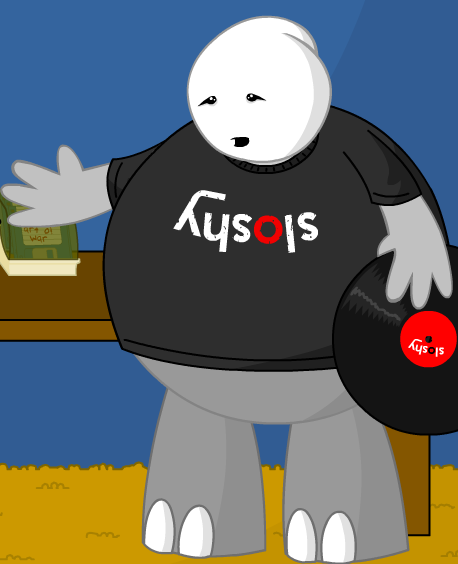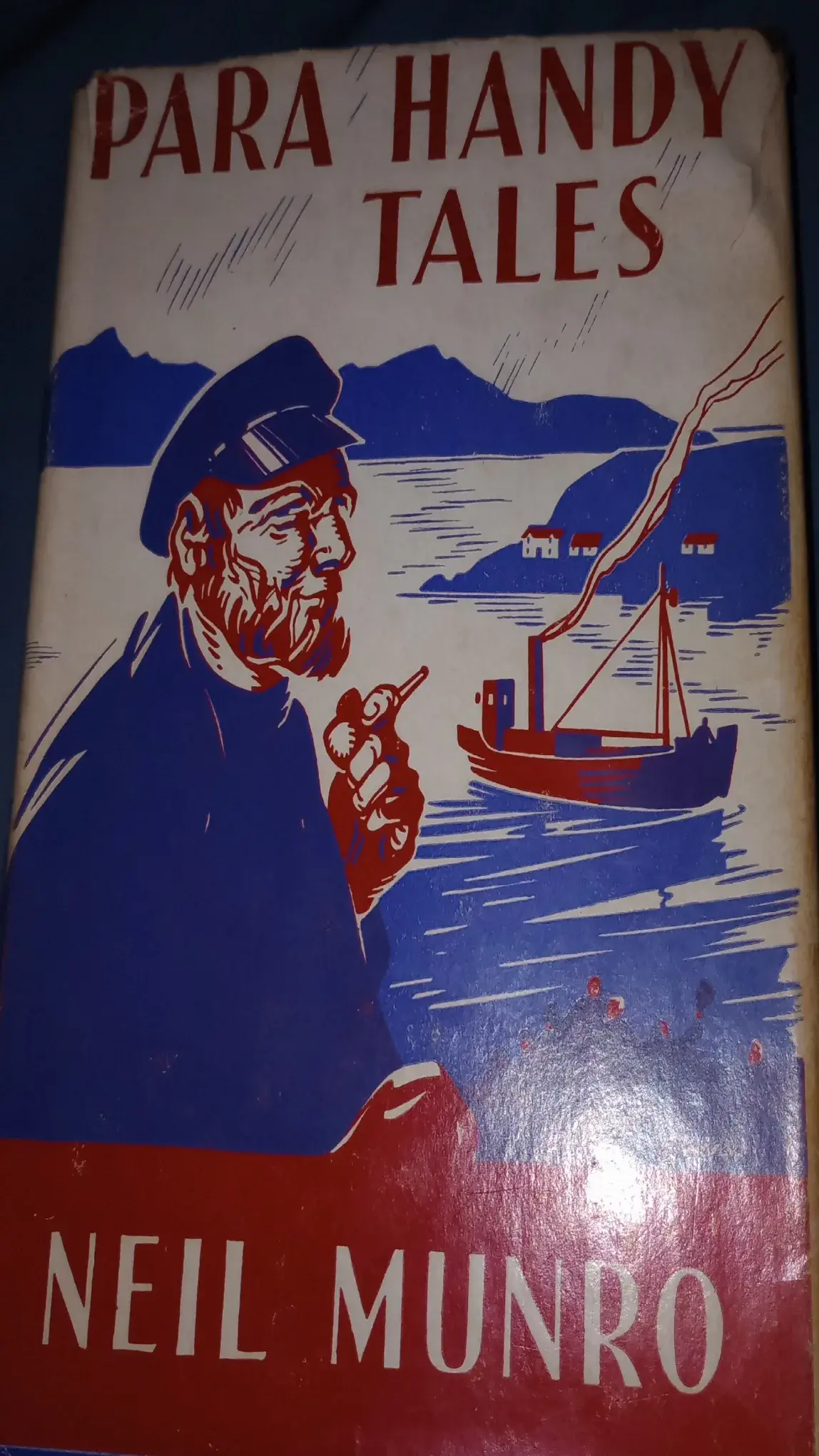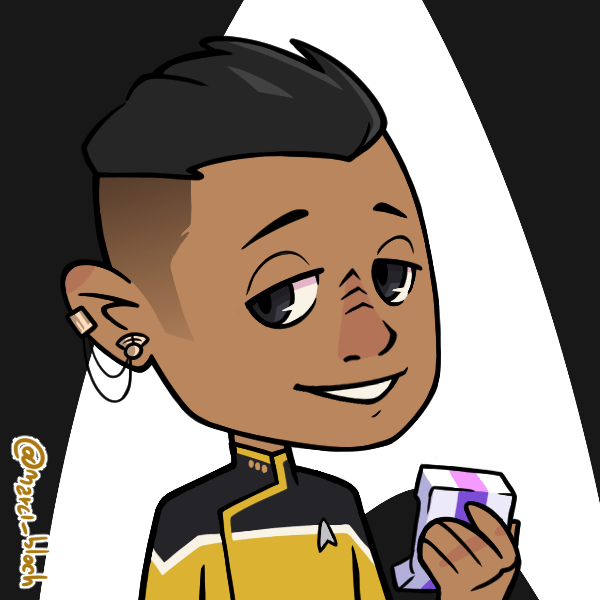In a TrekCulture interview a week ago, Rob Kazinsky, who plays Zeph in Section 31, talked about his reaction to the S13 movie.
He revealed one interesting point from behind the scenes about why the movie was made:
When I got this job, I was like, “Ugh, Section 31 movie, why are they doing a Section 31 movie? It’s gonna be hated from the get-go. No ones gonna want to watch a Section 31 movie. We’re doing a TV-budget movie. This isn’t going to be what people want…” And I spoke to Alex [Kurtzman] and I spoke to Olatunde [Osunsanmi] and they explained to me that Star Trek is dying. And I don’t know if people know that. You know, I was talking about Star Trek at my gym where I fight. You know, I’m a boxer where I fight with a lot of kids - you know, I don’t fight them but train them - none of them knew what Star Trek was. Could you imagine that?
He went on to say that Star Trek had never had a base as big as Harry Potter or Star Wars but the small fanbase was passionate. He says that fanbase is aging and “we are going to lose Star Trek if we don’t bring in new fans, new eyes and new ways of getting people to love the things that we love.”
I think that’s a valid point but Section 31 is not the answer. It’s not particularly interesting for kids (I think) or for adults, whether or not they’re Trek fans already. And for fans, this type of storytelling sacrifices the optimistic ethos (though not immune from criticism along the lines of DS9) that’s at the heart of the Federation and the franchise. And I’m not even arguing this from a canon or gatekeeping point of view. It’s not utlilizing Star Trek’s niche and unique selling point in the market. Why should kids watch Star Trek instead of Captain America, Suicide Squad, or any MCU movie?
Here comes the question: If you’re in Alex Kurtzman’s position, how are you going to sell the franchise to a new, young audience? How are you going to convince kids who spend their time playing Roblox and watching Mr. Beast that Star Trek is a good show to watch?
There are plenty of good responses here already, but to me the main thing in marketing Trek to new audiences would be stop the frigging nostalgia fest.
- don’t circle back to the TOS characters at the tip of a hat. Yes, JJ Abrams, I’m looking at you, but also every other recent attempt at new Star trek movies.
- All the stories around those characters have been told already. Make something new and current within the same universe.
- Don’t shoehorn canon and continuity onto every new show. Having Bones make a cameo in the TNG pilot was cute. Making Burnham a previously unmentioned lynchpin in Spock’s character was… unnecessary. Don’t get me started on SNW.
- The wealth of continuity from previous shows shouldn’t be a namecheck scorecard, but a backdrop that curious current viewers can track down and explore on their own.
Twenty years ago when the BBC relaunched Doctor Who, they played down all the background stuff for most of the first season, only drip feeding lore to the audience.
- The stories, the characters had to be appealing on their own
- The 26 seasons worth of classic Who wasn’t required watching to keep up, but it gave resonance to the new show.
Star trek needs to learn from that approach to focus on good stories and engaging characters — and to aim outside of the established but dwindling fan group by allowing the almost 60 years of canon to play second violin.
Un-cancel Lower Decks. 😉
Honestly, though, I feel like most media groups in general forget why the streaming model worked in the first place. They want Office-level hits, but forget that The Office wasn’t immediately successful. Not immediately killing it just because of that gave it time to find a fandom.
Most shows should automatically get 2-3 seasons, and they often aren’t getting that.
As for the whole “none of them knew what Star Trek was” anecdote - I find that a bit exaggerated. I’m a college student, and I wore a Boimler costume for Halloween- most could identify that I was something Star Trek. Around other people my age, they can at least think of Spock or Patrick Stewart.
How I got into Trek as a kid was my mom would be watching it, and she’d let us join even though we were supposed to be doing homework. TNG was the one I saw the most during that.
P.S: As I’ve floated around this forum several times, I think an animated anthology series of strange new crews would be awesome.
I wore a Boimler costume for Halloween
Nice
Stop trying to be ‘cool’ (or whatever you think is cool). Star Trek was never cool. Just do Star Trek and the right people will find it.
I don’t get the optimism vs ambitious feud.
I believe you think that DIS is the most optimistic because of its emphasis on emotional depth.
And I guess we can agree that the part of ambitiousness is a default of startrek for as long as it involves creatures from all kinds of worlds building teams and manage to work together. Basically for as long as the federation aka starfleet is part of the story.
Then why is it not a problem if that ambitiousness is paired with “optimism” ?
Could there be a reboot that decides to go back to the optimistic world view of the original?
It’s not just Trek. Who decided that all SciFi has to be dystopian, brooding, militaristic, or horror?
It’s ironic that if you want Trek with the vibe of the original you have to watch “The Orville”.
I see this take a lot, but it frankly just doesn’t reflect what I see on the screen. Can you give some examples from the shows that influenced you to form that opinion? I agree DS9 could probably be correctly be considered “dystopian , brooding and militaristic”, sure, but Discovery, Picard and SNW are (if anything) cloyingly optimistic and positive!
Who decided that all SciFi has to be dystopian, brooding, militaristic, or horror?
The Battlestar Galactica reboot caused an awful trend. Other studios clamored to try to recreate its success.
We already have Prodigy, Strange New Worlds, and Lower Decks under Kurtzman that are considered “optimistic.” The question is, do kids want optimism?
I’d consider Discovery to be optimistic as well - striving to make the world(s) a better place in the face of conflict, uncertainty, and disaster is still optimism. In fact, it’s arguably the type of optimism we need now more than ever before.
The first season of Picard flirted with similar themes, but I don’t think that series ultimately went anywhere with them.
I agree there’s intention to present optimism and humanism in the face of conflict, but I find the execution to be lackluster. An example that comes to mind is Pike objecting to using mines in season 2 of DIS. He raises the issue directly to Cornwell, saying it’s against Federation values. Then for some reason, the discussion becomes finding out why the Enterprise was diverted away from the Klingon war and ends praising Pike being “the best of Starfleet.” The entire discussion about using unethical weaponry during wartime is sidetracked and left unresolved. The mines are still there on the station, and the responsibility of Starfleet Command for not taking down those Klingon mines is not explored.
Another example is the explanation of the Burn. From interviews I’ve seen, the intention behind the crying Kelpien is to highlight the need to understand and sympathize with people vastly different from you even when the universe is as vast with warp travel impossible. The resolution is Burnham and Saru finding this Kelpien and help him understand his visions and thoughts, calm him down, and make warping safe again. But this Kelpien lacks characterization from the beginning. The audience doesn’t know him that well, and we don’t know why we should sympathize with his personal resolution. It would be much stronger if the cause of the Burn is the Emerald Syndicate, which we have established as a hostile force against the Federation. And we know they have good cause to be suspicious of the Federation from Osyraa’s meeting with Vance. In the show, despite this message of reaching out to the vastly different, the Federation and the Chain never understood each other and resorted to using force. Another good candidate for the cause of the Burn is Ni’Var, which has its reasonable suspicions of the Federation at the time.
I find the execution to be lackluster.
This is, to an extent, in the eye of the beholder, and I’m not inclined to argue too much about taste.
Except. Except.
the explanation of the Burn
I honestly think this is the most “Star Trek” thing the franchise has done in…decades. It feels like it was ripped straight out of TOS, and I absolutely adore it.
Agreed - there are different flavours of optimism. TNG presented a promise that one day, humanity will overcome the petty squabbles and bad ideologies it’s mired in today. There’s a place for that, but I think there’s more appetite today for a focus on how we’ll achieve that future - that we can and will fight for it.
Honestly, if I were pitching a concept to attract some fresh attention, I’d go with a “Star Trek: WW3” series. Set it around 2240 to 2250, feature Khan as a big bad, maybe sprinkle in some E.T. interference a la “Tomorrow and Tomorrow and Tomorrow” to keep that essential sci-fi flavour. You could also mine the Reeves-Stevens novel “Federation” for some inspiration. The point would be to make it feel contemporary and topical, but ultimately show that when that tipping point into Star Trek’s future arrives, we’ll be able to tip in the right direction.
I think there’s definitely room for different tones and ideas, as long as we also have SNW to keep that classic Trek approach alive.
I have a lot of half-baked thoughts about how TNG was more of a product of its time than we realize.
Growing up in the late 80s - early 90s, a lot of us were taught that social injustice were issues of the past, and TNG reflected that perspective.
That…well, even at the time, we were being sold a false bill of goods, and it certainly isn’t the world we live in today.
I have a half-baked thought of my own.
That as the world slides into the maws of oligarchy, we need to see the Star Trek series that zooms in on the transition away from money.
They should face the music of class war with that Trek panache that made them great👌
TNG did try to address social justice issues, but agreed it did so in a way that was extremely of its time. The Outcast is a great go-to example of that. It’s basically an anti-conversion therapy parable, so definitely progressive for its time, but in the process it portrays non-binary gender expression as literally alien to the Enterprise crew.
I think that’s partly why I love and gravitate towards DS9, from the culture wars allegory to analysis of imperialism to the ethics of terrorism and beyond.
I think the beauty of DS9 is you have very different characters evolving together and shows people with different world views can still develop working respect and friendship with each other.
It’s dying because its repeating the old mistake of trying to go back to the exact same formula, and because it’s less accessible.
In my opinion, Paramount taking Disco off of Netflix, in favour of sticking it onto its own streaming service, was a mistake. Although it meant that people were less able to access it, either because Paramount Plus wasn’t available in their region, or because they couldn’t justify the cost of spending money on another streaming service.
And in the meantime, it keeps trying to go back to the same thing. That was what killed it back at the start of the 21st century. Enterprise and Voyager were variants of exactly the same kind of thing as TNG, with better special effects. Everything keeps trying to go back in time, and cater to Nostalgia. Remember Captain Kirk? What about Picard? Or the Constitution-class Enterprise? There doesn’t feel much like there’s anything interesting in Trek any more. It’s basically all rehashing or nostalgia.
For all its flaws, part of what made Discovery interesting was that it was (not unlike the ship itself) an experimental testbed. Writers would, and did, just throw everything at it, for good and ill, and I’d argue it worked. Having that flexibility gave us the second wave of Trek, and I’d argue just as much that Discovery settled into being some kind of 32nd century TNG was either a harbinger, or hurt it severely.
What Trek really needs for a revival is something that the network would never allow (CBS/Paramount would never risk their cash cow.), and that is to go back to its roots. Not in the Federation-and-Enterprise way, but in what made TOS.
TOS stood out because it wasn’t like the other cowboy shows at the time, or like the rocketty sci-fi of the era. It was distinct. It pushed the social-progressive line so hard it was nearly pulled off the air, and if Roddenberry had had his way with including an LGBT member in TOS like he’d wanted, might have done so outright.
Newer Trek (TNG and onwards) is much safer and more conservative by comparison, to the point of being boring. It barely pushes the line, if at all. The Orville, by virtue of having less brand baggage behind it, arguably does a better job of being progressive.
Visually, too. Every Federation starship basically follows the same template, even into the far distant future. Trek is not glued to the appearance of the Constitution-class Enterprise, or a variant of such for its hero ships, nor does every ship need to use warp engines and that.
A minor side tangent, but reverting to the same kind of thing is why I was rather disappointed with what Discovery did with the 32nd century. It would have been far more interesting if they’d gone to a time when all the powers we know and are familiar with, and even the tech aboard Discovery were ancient and long-deprecated.
Discovery in the 32nd Century, as an Equinox counterpart of the Voyager plot could have been amazing, both from them being an outdated starship in what used to be familiar territory and what it would mean to maintain Federation values when the Federation doesn’t even exist any more.
Honestly, I think bits of Picard and Strange New Worlds had the right idea when it came to the Synth ban, and the Illyrian extinction. Show us the downsides of Federation policy for things that might have been well-intentioned, but had negative or mixed effects, and how they fixed/improved it. That’s something we’ve rarely seen in Trek, in a way that wasn’t just “we don’t like this rule, so we’ll ignore it”.
Here comes the question: If you’re in Alex Kurtzman’s position, how are you going to sell the franchise to a new, young audience? How are you going to convince kids who spend their time playing Roblox and watching Mr. Beast that Star Trek is a good show to watch?
The young audience isn’t a monolith, and I’d argue that Star Trek is better off not competing head-to-head. Could you imagine DS9 or Voyager with their totally not-a-square radical groovy Teenage Mutant Starfleet Captain? It would be unwatchable. Hell would be upon us.
Instead, Trek could benefit by competing through simply not competing, and stand out, rather than copy other sci-fi. Give us what Trek has always been, a nice slow comfort watch, where everyone is competent, and everything isn’t always at stake or fisticuffs all the time. That may work to its benefit, when everything else is dark and gritty, since it would be distinct compared to other things.
It’s more TV is dying and Kurtzman hates Star Trek as a concept and can only write one kind of story. There is this thing we need to find that thing. An entire season about finding that thing.
When star trek is done right it works and gets shared around and does well. The five OG star trek series. Strange new worlds, The Orville Prodigy
It also kills me that Kurtzman misses the entire point of what Section 31 was in DS9. When he said a utopia can’t exist without someone doing the dirty work like S31. That kinda of undermineds the entire point of star trek and If we have gotten to that point star trek is already dead and a dystopian zombie is wearing it’s face.
There is this thing we need to find that thing. An entire season about finding that thing.
Ah yes, the season-sized adventure that feels like a bunch of yak-shaving fetch-quests in an rpg.
we must find the progenitor macguffin, but first we must find the treasure map, but first…
If we look for it we probably see this pattern is common across many trek episodes, but across a season they managed to do it in such a way that feels very obvious and hard to miss.
Yeah an episode is fine if you can put a twist on it but a “full campaign” I mean “Season” of story telling. I would expect more from my group’s DM and he doesn’t get paid.
Make it episodic again, focus on the story instead of the action, and basically just do TNG, but with even better sets, costumes and make-up. Stop trying to be dark, gritty and edgy. If there is an over-arcing narrative, make it the B or C plot in most episodes, to keep it episodic by nature.
You’re basically describing Strange New Worlds 😂
I seriously keep forgetting about that one and need to watch it.
Please do. I was surprised to find it really back2theroots. I hope they finish it. And not just 3 seasons please.
And give the side characters some personality! Some of the bridge crew in Discovery literally were just a person in awesome makeup
Free to air. It’s how we all got hooked
Sorry, I don’t care what Kurtzman says about this (or an actor that is obliged to defend a project he was in) when it’s justifying putting out schlock for mind share. If that’s the best we can do, let it die - it doesn’t make anything that exists any worse.
Trek needs a good show that stands alone and isn’t aimed at us but a fresh audience. That means no cameos, limited references, not animated (that is a stigma as much as I love LD), and actually taking the time to get people invested.
Basically, they needed Discovery to not be garbage. I know non-Trekkies that were actually excited for a new sci-fi romp and got turned off almost immediately by the nonsense writing. Not the cast, or stupid out of universe concerns about being “woke” or some shit, just plain out “this makes no sense and isn’t fun to watch” and it was hard to disagree.
Everything since then has lived in Discovery’s shadow in terms of new audience and has mostly dealt with that by being aimed at fans of 90s Trek and nobody else. Prodigy may be an exception here, but that suffers from being oriented at kids.
I agree in some senses with the stand-alone part, but not necessarily the animated part. I feel like it would just need to be marketed right. Executives are convinced for the most part that animation is either only for kids or for irreverent adult comedies, when it really should be viewed as a general medium.
I think Infinity Train is the best evidence of my point (look it up if you don’t know); it really transcends the typical bounds assigned to animation. Book 3 especially is truly just a great fantasy/sci-fi drama. However, it was basically killed by executives who wanted a tax write-off and couldn’t see its potential outside a “kids show”. Now some of the series is purchasable on various online storefronts, but the only way to watch all of Book 3 is to pirate it.
If executives and people alike would liberate themselves from the stigma of animation, I feel like you could pull off high-quality, TNG-length seasons that allow less rushed charater development for a reasonable budget compared to an expensive live action streaming show. In some ways, Prodigy was an example of this - I felt like I got more time with the characters than almost any other modern Trek (granted SNW is still going on).
I’ve never met a person where I mentioned Star Trek and they went, “Ew, Discovery. I’m never watching any Star Trek ever again”; I think Discovery had its flaws (and strengths), but it made little impact on franchise popularity.
Usually (which you touch on), it’s more like they’re just bamboozled by the cannon. Like, I was watching DS9 once, and my roommate asked if it was the original, which then brought a long and complicated explanation from me. I think you’re right that it’d be very nice to have a Star Trek show that one could show to people where when old lore is brought in, it’s delivered in such a way that people can pick it up as they go.
Is SNW even still a thing? We still have no date for S3 for nearly 2 years now.
Yes? It’s been renewed, and should premiere this year.
Season 4 has been confirmed as well. It’s true that there was a longer gap between seasons 2 and 3, but that’s when the Hollywood strikes fell, so it’s not surprising.
They’ve said it’s coming in early this year - there’s literally a clip of it out: https://m.youtube.com/watch?v=llvMv5-ydyQ&t=150s&pp=2AGWAZACAQ%3D%3D. It definitely looks near done.
Also, season 4 seems to already be in pre-production.
Re runs and free yt uploads of TNG with advertising like “here’s a future we can have, with quality leadership. Keep fighting for decency”
What is the age range they are classifying as young? Are they talking like teenagers or mid-20s to 30s? The thing with Star Trek that I think attributes to the non-fans not watching would be the stylization. Going back to the comparison of MCU, HP, and Star Wars: they all have something unique (be it the directing, photography, acting, writing, music, special effects, etc.) that if you pay attention for a significant period will find. Star Trek is no different. When you watch a MCU movie or TV show you probably see the sleek costumes and fast paced fight choreography. With HP, it was probably all the special effects, makeup and set design. For Star Wars it might be the writing, special effects and music.
I’m being non-specific here of course. Star Trek like I said is no different. There are visual and non-visual language being utilized that we find enjoyment in. For anyone not currently into these properties, it could be difficult to enjoy. Especially if you haven’t been someone who watched these properties from a young age or from the early years. For example, if you had someone exposed to only the Kelvin Timeline try to watch TOS or TNG with no context for how it relates, a disconnect might form. Visually those series are not as sleek or modernized as those movies.
As for the comparison to video games… that is simply a different medium. What appeals to one person to the next will be hard to gage. That doesn’t preclude the likes of Fortnite players from enjoying Trek, but culturally that kind of entertainment is very different from what a kid who grow up with TNG was exposed to.
I’m struggling to find it now, but I read a Jonathan Frakes interview last year (I think) where he expressed a similar sentiment.
Basically, he said that the fans that he sees at conventions are getting noticably older, and there aren’t as many younger people joining the fold.
He would be a better judge of that observation. However I was at STLV last year and there was a sizable number of younger fans (especially those who are teenage). Maybe not a lot.
Sure, I don’t think anything is absolute. But I think there’s a general impression that as the older fans literally die off, there aren’t enough younger ones to replace them, let alone expand the popularity of the franchise.
I think PRO is a step in the right direction.
Agreed, though it seems unlikely that we’re going to get any more of it, sadly.
I think the current approach is the correct one, even if it produces a few misses here and there.
A variety of tonally distinct projects, aimed at different demographics, telling stories.
I’m inclined to agree, and the series from the past decade have definitely attracted a younger audience, though I’m guessing probably not to the degree the producers were hoping and also without holding onto as many of the olds as they were hoping.
I also think the latter half of the 20th century was a unique time where families were sitting down to watch family-friendly (it’s true don’t deny it) TV like Star Trek together.
I would lecture the little weaklings on how life was like in my day, and tell them to get off my lawn.
section 31 was pretty cringe. There were some pretty cool concepts and ideas but, overall not executed well at all. It seems section 31 is made up of a bunch of dumbass rejects? Georgiou character was way over hammed compared to how she was in Discovery. Driving the movie like it was a video game was an interesting idea that could have been done better. The couple twists with the whole “whos the traitor?” was interesting if not rushed, seemed like an afterthought.
its one of those movies you watch once.
















